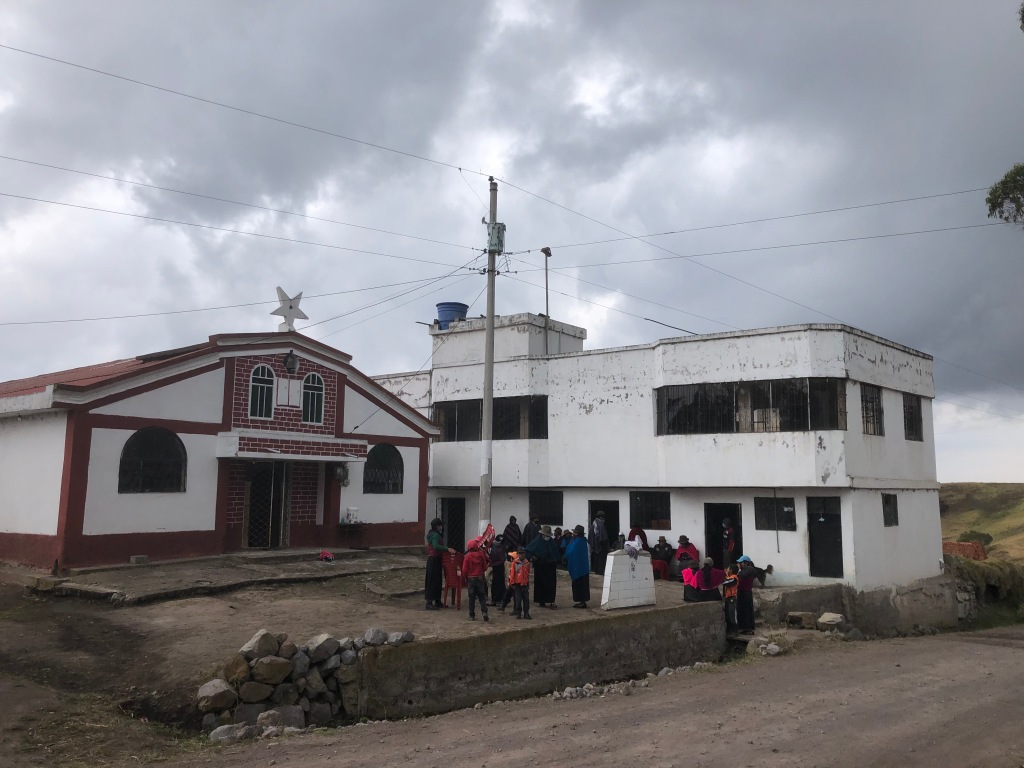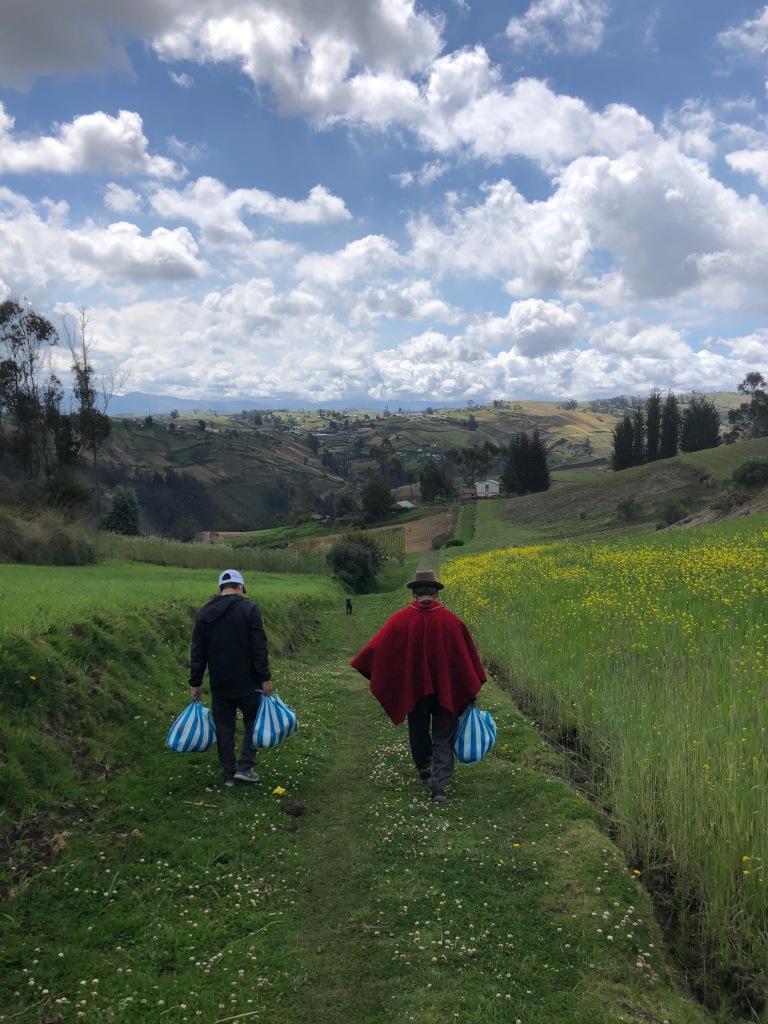on my most recent visits to cajabamba, a town in the shadow of the great mountain chimborazo, i have been helping deliver food to the isolated, poor, elderly, and infirm in the surrounding communities. it is of course not the end goal of ministry, these food handouts, deliveries, but to further minister to people it helps if the people aren’t starving and have basic needs met. and this is a great way to get to know the people and the places.
our partner ministry in cajabamba is run by one family, a husband, a wife, their adult son. they are involved in more than thirty communities in the area, leading churches, supporting the poor, training leaders and pastors, feeding school children in the afternoons. they all grew up in these hills, speaking quichua before spanish; they know an incredible amount of people.
pastor manuel and his son marco help me load up the back of our x-trail with dozens of large shopping bags heaped with food: rice, flour, sugar, tuna, beans, pasta, oil, and more nonperishable necessities. we drive up and down the hills south of town, on dirt roads, on roads paved with patterned stone, we pass patchwork fields of quinoa and wheat in dark volcanic soils, rolling hills under rolling clouds, landscape that is – to me – intensely reminiscent of rwanda. we stop at houses here and there, step out of the car, get a bag or two ready while manuel calls out to anyone inside. marco gives me information in spanish on each family, or tells stories about when he was a child, before there was water piped to the homes, or about the first evangelical missionaries in the area.
at one house a handful of children greet us, watch the car with curiosity, and are given the hulking bag of food. as we drive away marco tells me their parents were both lost in a car accident mere months previously, and are now cared for by their grandparents.
an ancient woman at another home hobbles up to us, and when shown the bag of food weeps openly, insisting on hugging us all before dropping to her knees, head to the ground, praying loudly in thanks, and is eventually helped up by manuel and marco who seem uncomfortable with the display.
at another stop, marco carries the food bag around some hedges to a home half hidden, but the matriarch follows him to the car to thank us to our faces.
an old pastor (the first local pastor in the area, i am told, who performed manuel’s wedding ceremony) with failing sight and failing memory tells us we have literally kept him and his wife alive. he writes our names down so he can at least remember to pray for us.
but the basic need for food is an element of larger issues. these communities are what are left when the young see no hope and escape to the cities to try to find work. but they thus abandon parents who are aging rapidly in those cold hills, or children who have few if any educational opportunities. in a town of hundreds there are but a few children. so what do ministers of the church do with such a scattered, aging, impoverished population?
the overall goal for the ministry is to build up functional communities where young people are not driven to desperation and departure. marco, when studying in quito in previous years, saw the incredible amount of people from rural areas (including himself) who could have been contributing to their home communities. he experienced also the discrimination against the poor and the indigenous. he decided to return to cajabamba and help his parents change things. that was several years ago. and from providing teaching and social services out of their small apartment in cajabamba, they were eventually able to build a small house on a piece of property on the edge of town. and now they have a three story building that was built through donations and volunteer effort. (when i asked how they were able to construct such a large building with no budget, marco said he didn’t really know, that God did all of it.) there is still work to do, but the place is a functional center of ministry. they hold church services, provide meals for school kids, host pastor trainings, equip youth leaders. they have relationships with many other ministries and even a local university that allow them to hold classes for sewing, hair cutting, dentistry, and agricultural creativity. much of this has been put on hold during the pandemic, but these programs are beginning again.
on one of my trips, back in february, i spent the morning with manuel and marco, eating pancitos and hard-boiled eggs before my drive to visit another partner ministry. as we were talking, i told them a bit about my background, the things that brought me to international ministry and community development work (quick overview: it was mainly the gospels). and then i asked them, why do you do what you do? manuel thought for but a moment before launching into a description of matthew 25, where Jesus is praising the ones who fed the hungry, sheltered the stranger, clothed the naked, visited the sick or imprisoned, and these acts were done as if to Christ Himself. manuel asked, how can we claim to follow Christ and not do such things? as one who uses this passage when teaching community development, as it was instrumental in the development of my own ministry mind, i was greatly encouraged.
i look forward to the future ministry opportunities in cajabamba (and the surrounding areas) with this dedicated and dynamic family.






